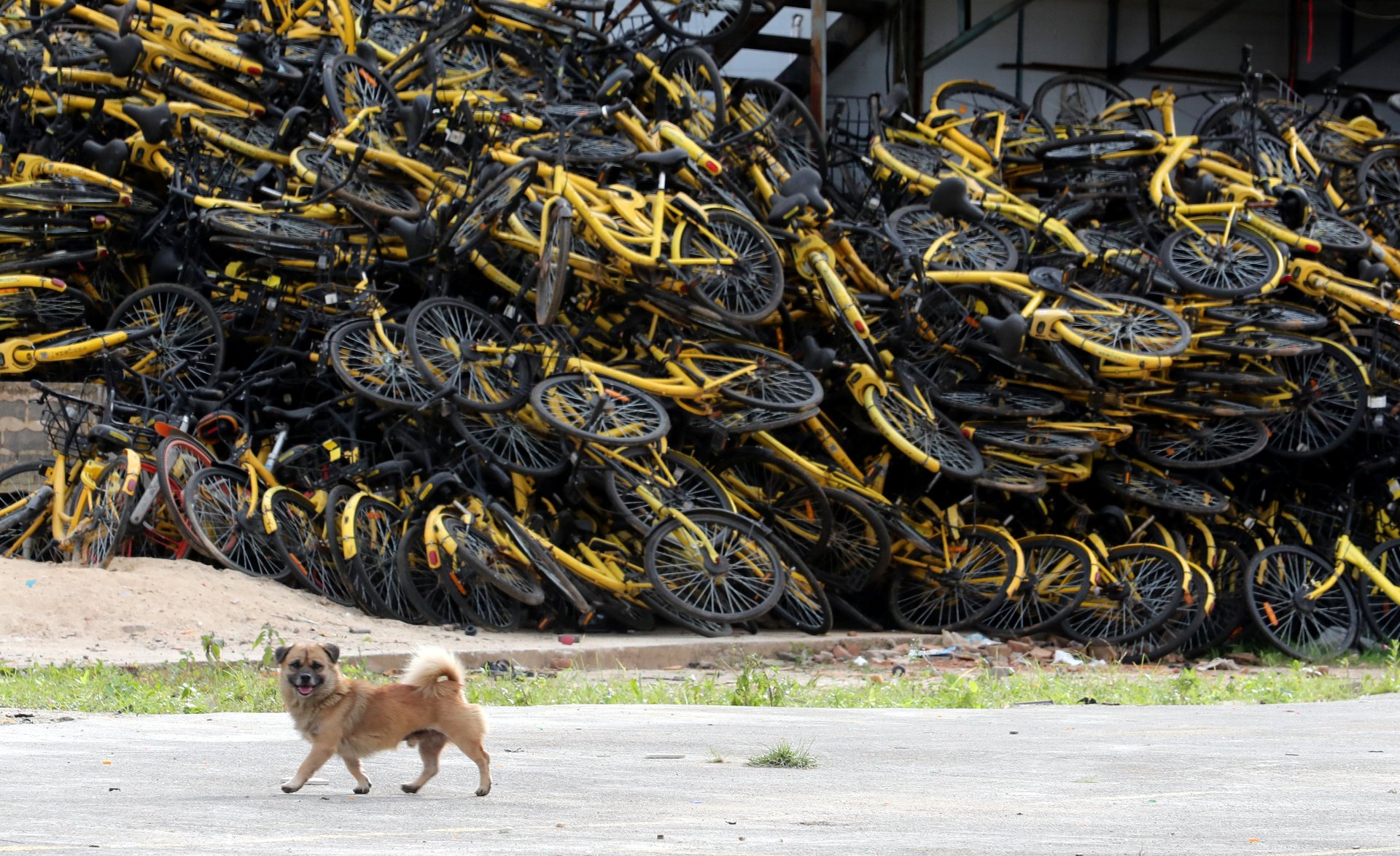A court has revealed the sorry state of a Chinese bike-sharing startup once worth $2 billion
A Chinese court has ruled that bike-sharing startup Ofo, once valued at upwards of $2 billion, has no ability to pay its massive debts to either suppliers and users, adding another chapter to a cautionary tale for investors in China’s frothy startup sector.


A Chinese court has ruled that bike-sharing startup Ofo, once valued at upwards of $2 billion, has no ability to pay its massive debts to either suppliers and users, adding another chapter to a cautionary tale for investors in China’s frothy startup sector.
Ofo “has basically no assets” (link in Chinese) and therefore cannot repay Tianjin Fuji-Ta Bicycle, a supplier that sued the operator of the bike-share company this year to recover the roughly $36 million it was owed, a court in the city of Tianjin ruled on Monday (June 17). It noted that the company’s bank accounts either have a zero balance or are frozen, and that it had no property, cars, or investment assets either, in a verdict first reported by China Securities Journal, part of the state-run Xinhua news group.
Ofo, founded five years ago, once rode high on the expectation that more and more people in China would start to use its dockless bikes to cover the first or last mile of their commutes. The company raised more than $2.2 billion in eight rounds between 2015 to 2018, with Chinese e-commerce giant Alibaba Group and ride-hailing operator Didi Chuxing among its major investors. Over the same period, Mobike, Ofo’s biggest rival, also received more than $900 million, as the bike-share sector took off, even inspiring a host of other “sharing” businesses.
Bike-share companies placed scores of bicycles across Chinese cities, which users could rent for a small deposit that started at 99 yuan ($14.3) and an even smaller hourly charge. But the bikes faced vandalism and theft, and were left in untidy piles that city authorities had to deal with. Even more problematic was how they could make money by charging just a few cents per ride, while shelling out for hundreds of thousands of bikes. By 2017, some showed signs of faltering.
Last December, hundreds of Ofo users queued up outside its Beijing headquarters to ask for their deposits back. In all, nearly 12 million of the company’s registered users have requested deposit refunds, an amount totaling nearly $170 million. Its CEO has been put on a blacklist of defaulters by a court.
Ofo’s rise and fall has been a sobering example for many China-focused investors who placed big bets on cash-burning startups expected to get to a listing quickly, allowing them to cash out. With China’s economy slowing, and given the sluggish performance (paywall) of some newly listed Chinese tech companies in the last year, investors are less willing to pile in, putting the survival of smaller startups in question.
A possible proposal from Didi and Alibaba’s fintech arm, Ant Financial, to acquire Ofo for $2 billion last year did not pan out. Rival Mobike (now named Meituan Bike) was saved, however, after being acquired for $2.7 billion by on-demand service provider Meituan Dianping, which is backed by Chinese social media giant Tencent.
Meanwhile, Ofo has either scaled back or completely withdrawn its international operations overseas, including in the US, Japan (paywall), and Singapore. Domestically, the company has not officially announced the suspension of its business, but users say they rarely see (in Chinese) its yellow bicycles on the streets now.
Ofo did not reply to emailed requests for comment for this story, but has previously publicly said it’s continuing to operate normally. Some of its communications have been less reassuring: On April 1, a company account tweeted, “Everyone is getting their money back.” The message was later deleted—Ofo’s predicament is clearly no laughing matter.